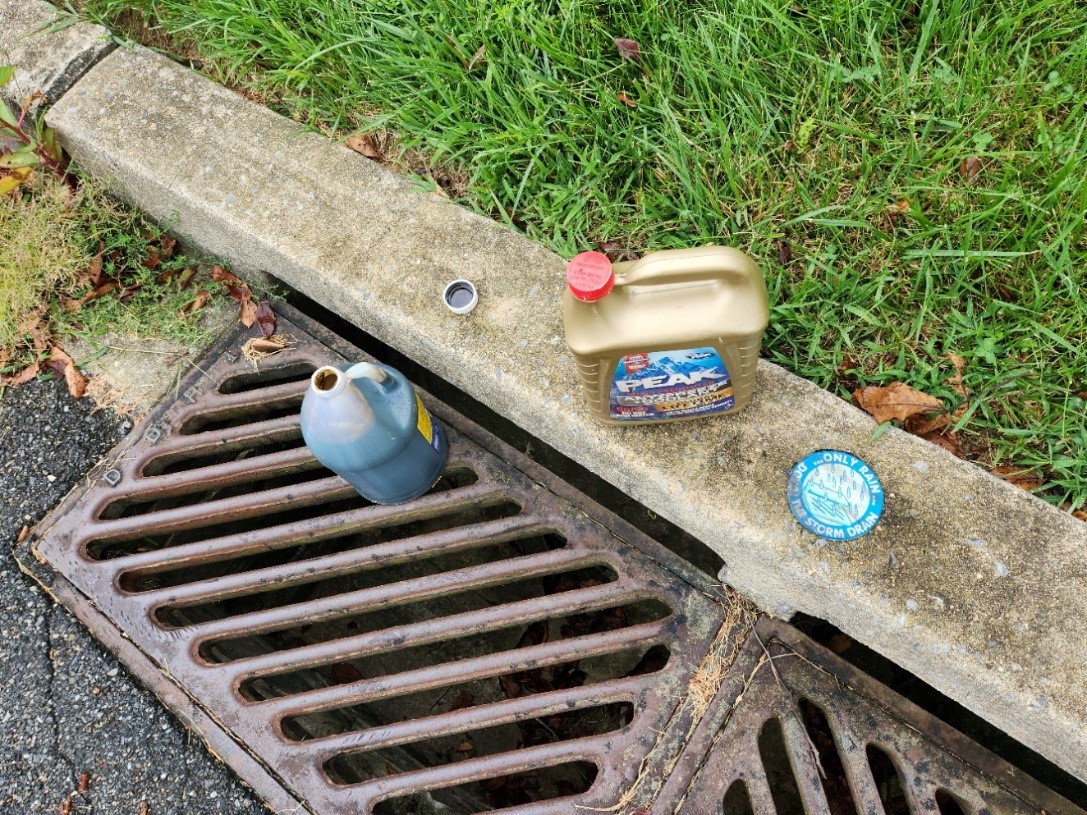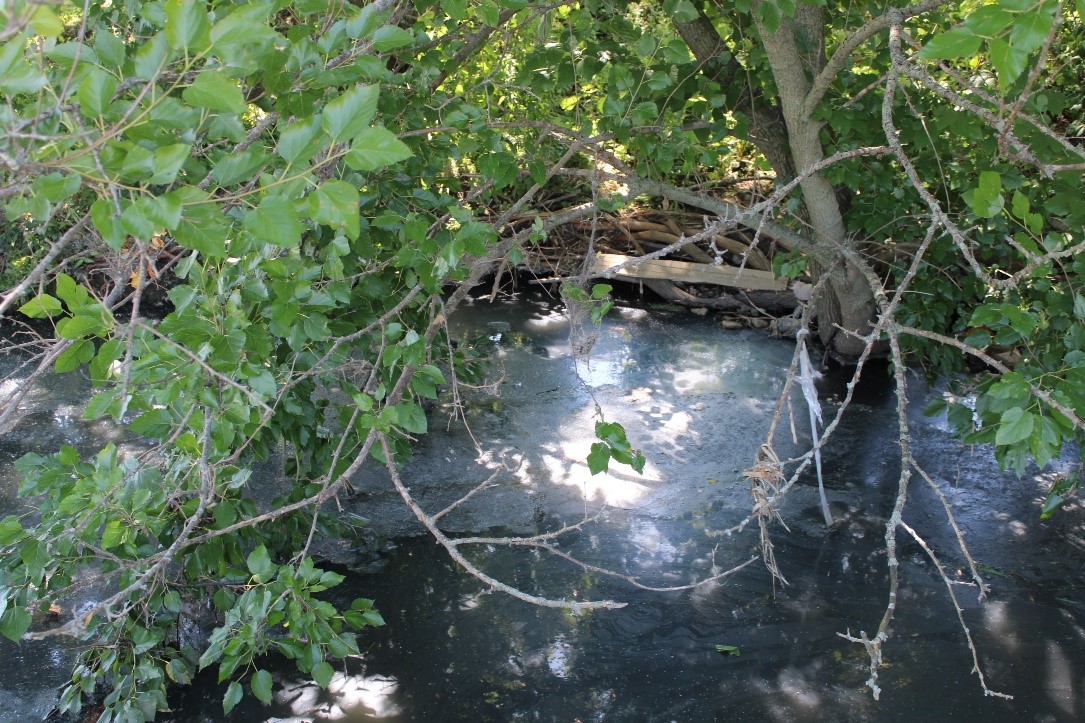
Imagine looking at a house to buy and seeing soapy water flowing from a pipe into a ditch. Would that make you reconsider buying the house, not knowing what this discharge was? Or noticing a murky colored stream that smelled musty, like sewage, even though it hadn’t rained for days. These are both signs of illicit stormwater discharge. Illicit discharges happen when things other than rainwater go into the stormwater system.
Stormwater systems utilize stormwater grates, underground pipes, and open swales to convey untreated surface storm run-off to water bodies, including streams and lakes. When any of these illicit discharges enter the stormwater system, these pollutants can cause public health concerns, including harmful bacteria counts, fish kills, and excess nutrients that harm aquatic wildlife.
Examples of Illicit Discharge
- Soapy water, like from car washing or laundry, going into waterways.
- Waste from septic tanks or industries entering stormwater systems.
- Dumping waste oil, chemicals, or pesticides into storm drains.
Recognizing Illicit Discharge
- Strange colors, smells, or scum in water could mean illicit discharge.
- Dead fish and other wildlife can also indicate a problem.
- Makeshift pipes or hoses leading to waterways might be illicit discharge, especially if you see something draining from them on dry days.

What You Can Do
- Dispose of chemicals properly at special collection events. Visit https://www.chestercountyswa.org/117/Household-Hazardous-Waste for a list of dates for household waste collection events.
- Handle pet waste correctly to prevent harmful bacteria and excess nutrients from entering our waterways.
- Wash your car on your lawn so that excess water, soap, and dirt are filtered through grass and vegetation.
Together We Can Help
Report illicit discharges to local authorities or environmental agencies. Remember, what you put on land ends up in the water. Let’s work together to keep streams and lakes clean! To report an illicit discharge call your local municipality, conservation district or PADEP Incident Report at 866-255-5158 or on-line at https://greenport.pa.gov/obPublic/EnvironmentalComplaintForm/
Download this article as PDF or MS Word Document
Article written by Brian Winslow, Watershed Conservation Director, Brandywine Red Clay Alliance, www.brandywineredclay.org

